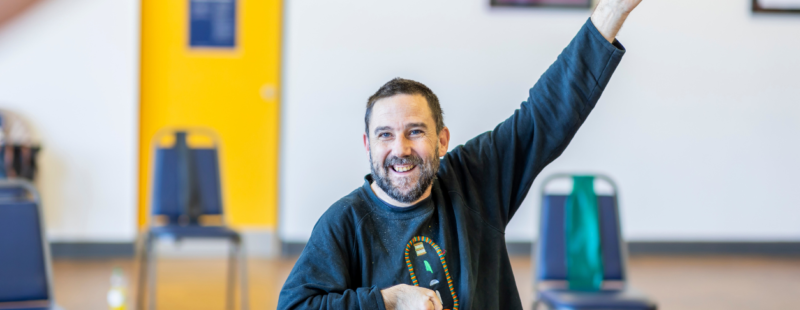The Royal Voluntary Service is a founding partner of the Campaign to End Loneliness and like the other four partners (and our 400 supporter organisations), delivers both practical and research-based work in order to improve the lives of older people.
Tackling loneliness through consultation
Latest research from the Royal Voluntary Service, Shaping our Age, has shown that the involvement of older people in shaping activities and services is vital to improving wellbeing: this chimes with previous research that shows the most effective interventions for tackling loneliness are those that are designed with older people.
This is research from Professor Cattan, published in 2005, over eight years ago, yet, today’s research shows that 71 per cent of older people say that they are rarely or never consulted on services that impact their life.
Jennie Fleming, Reader in Participatory Research and Social Action, Centre for Social Action, De Montfort University, said:
“Shaping our Age clearly demonstrates the need to involve older people more in both the debate around their own well-being, but also the actual services that they use. Participation in activities makes a massive difference to an older person’s sense of well-being and that in turn can have a positive effect on loneliness, which we know has a knock on impact on mental and physical health.”
Why are we shunning co-design?
Considering the high levels of understanding about the health and wellbeing impacts of loneliness among those of us who work with older people, it is puzzling why so many organisations seem to shun a valuable resource that they all have, and could use, to ensure their services are effective.
The consultation-stage of service delivery is a tried and tested way of ensuring our services and activities are doing what they profess to: tackling loneliness and enhancing wellbeing. Why are so many organisations still not involving older people in the design and even delivery of services when it has been shown to be so effective in assisting ultimate wellbeing goals?
Small steps to joint service-design
As a result of our independent evaluation, we know that some of our 400+ supporter organisations (both local authorities and front line organisations) have started to consult directly with older people to design services. However, as today’s report shows, we need a tidal wave of change not a few pioneers.
If so many of us are working to tackle loneliness in older age, we must take the time and effort to involve older people in service design, evaluation and delivery, or our efforts to help tackle loneliness may prove to be ineffective.





No comments on this article yet. Please feel free to submit a comment below.
By submitting a comment you grant Campaign to End Loneliness a perpetual license to reproduce your words and name/web site in attribution. Inappropriate and irrelevant comments will be removed at an admin's discretion. Your email is used for verification purposes only, it will never be shared.